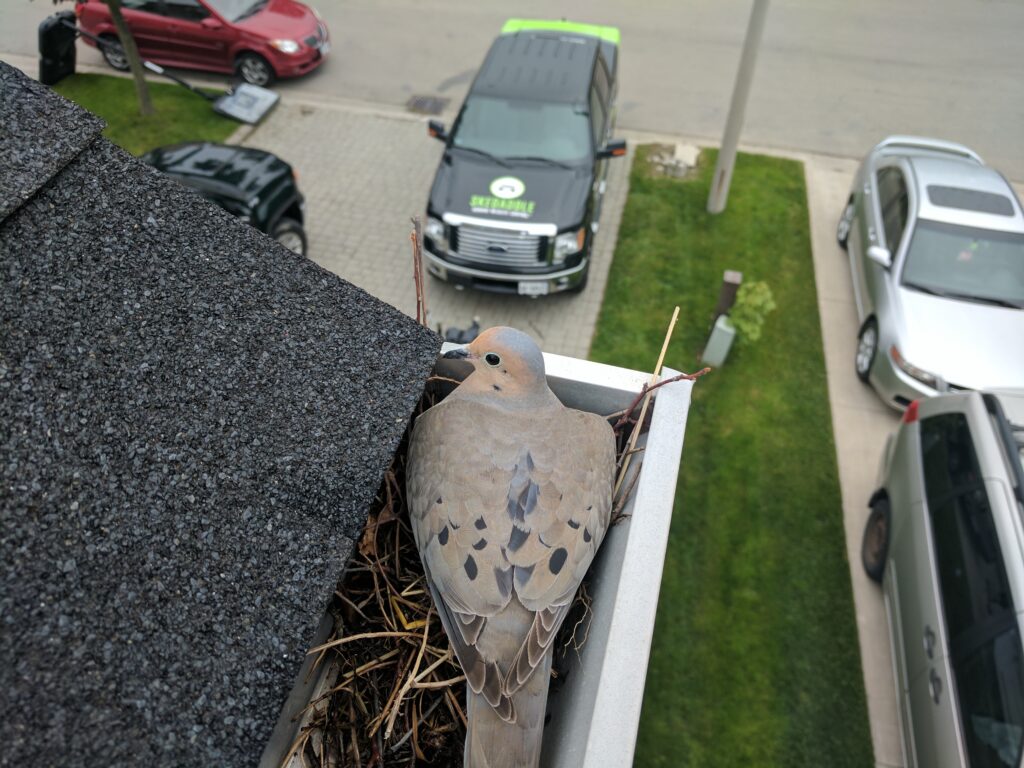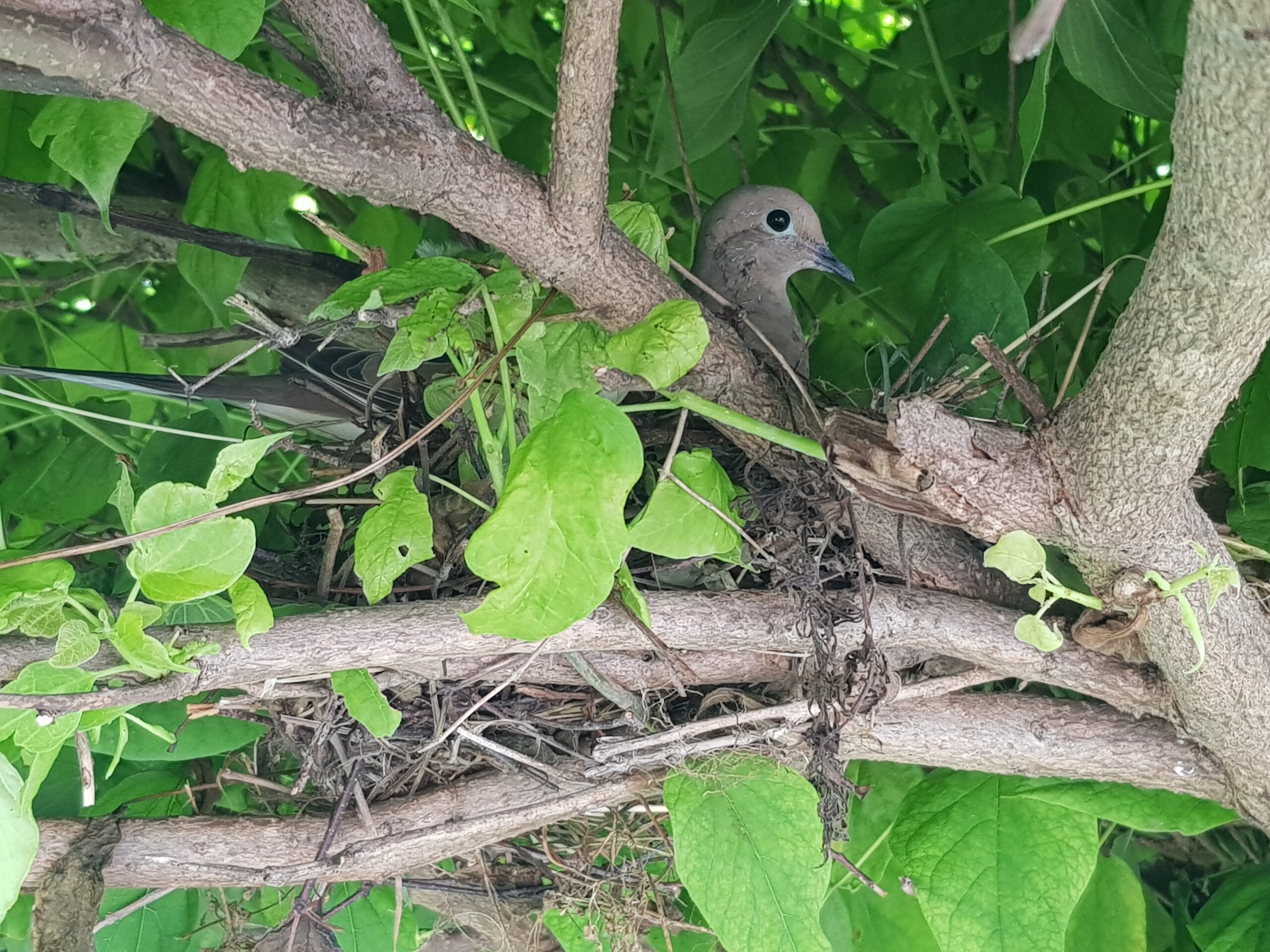Gardens are sanctuaries of growth and beauty, yet the untamed wilderness of Victoria’s landscapes often blurs the lines between our cultivated plots and the natural world. Seasoned and novice gardeners alike face a delicate challenge: how can we coexist with the local wildlife while safeguarding our gardens? The answer lies in a harmonious balance whereby we can appreciate the facts about birds without sacrificing our plants to their appetites.
Understanding the symbiotic relationship between birds and our green spaces is essential, as it’s well-documented that they help plants through pollination and pest control. Yet, the dilemma arises when these feathered friends develop a taste for our carefully tended seeds. Mastering how to prevent birds from eating seeds demands a blend of ingenuity and compassion, ensuring that our gardens thrive alongside wildlife, not at its expense. Skedaddle’s gentle approach to garden defence respects the intricate dance of nature while ensuring that your lettuce and petunias flourish.
Bird Control Techniques for Your Spring Garden
To ensure your spring garden is bird-free, consider implementing wildlife prevention techniques early in the season. As an expert wildlife control team at Skedaddle, we recommend a set of gardening chores that are particularly effective in managing bird activity.
Firstly, employing a ‘clean garden policy’ is a key practice. Regularly remove fallen fruits, seeds, and nuts from your garden as these can be attractive food sources for birds. This simple step could dramatically decrease the number of birds that visit your property. Keeping your outdoor areas clean and tidy also offers the added benefit of discouraging other types of wildlife such as rodents.
When it comes to your compost heap, make sure it’s secure against would-be intruders. Birds are known to scavenge from compost piles looking for food waste. Ensuring your compost is well-contained can help. Skedaddle suggests compost bins with tight-fitting lids to keep them away.
Furthermore, consider making strategic choices about your garden’s water sources. Birdbaths and garden ponds can be extremely appealing to wildlife. If these features are important to you, consider implementing deterrents such as floating, moving objects that can dissuade animals from approaching.
Finally, examine the trees and bushes around your property. These can often provide ideal nesting spots. Prune back particularly dense areas and consider removing any old nests which may entice birds to return.
Implementing these good gardening practices in spring can effectively curb wildlife activity on your property. Remember, it’s always important to manage wildlife in a humane way, and Skedaddle is always here to assist you with any challenging wildlife control situations.
How to Prevent Birds From Eating Seeds
Protecting your seeds from birds involves several tactics that could contribute significantly to ensuring your gardening efforts come to fruition. Embracing these measures can help you deter wildlife from feasting on your seeds:
- Use seed covers: Seed covers, whether store-bought or homemade consisting of materials like plastic or mesh, can shield your seeds from invasive birds. It’s essential to ensure these covers have small perforations to allow light and water to seep through.
- Employ netting: A popular deterrent method, netting, can prevent birds from reaching your seeds. Ensure that the netting is secured appropriately over the area with seedlings, so they don’t sneak under it. Remember to remove the netting once the plants are established to allow for growth.
- Use seed tapes or pre-seed mats: Seed tapes or mats are full of seeds at optimal spacing, covered in biodegradable material. This method helps to hide the seeds under the surface, making it harder for birds to find them.
- Install scare devices: These can range from commercially available bird deterrents like reflective tapes and wind chimes to DIY solutions like old CDs or aluminum foil. The key is to install them strategically around your gardening patch to scare away birds.
- Incorporate companion planting: This method involves planting certain types of plants known to deter birds. The aroma or physical features of these companion plants act as a deterrent against birds.
- Provide alternative food sources: By placing feeders away from your gardening area, you can distract birds and keep them engaged, decreasing their interest in your seeds.
Maintaining these helpful habits not only ensures your gardening efforts are fruitful but also contributes to humane wildlife control. It’s all about finding a balance where both you and the birds can co-exist peacefully.

Key Plant Choices to Deter Birds and Other Wildlife
As the emergence of spring encourages us to prepare our gardens, strategically choosing plants is a crucial step towards discouraging birds and other wildlife from creating havoc. Opting for plants that do not particularly attract local bird species and other wildlife can maintain the aesthetics of your yard without causing wildlife issues.
Planting Non-Fruiting Varieties
One way to discourage birds and other wildlife from visiting your yard is by choosing non-fruiting plants. Fruit-bearing trees and shrubs are a major attraction for birds and other animals as they provide a convenient and abundant source of food. To mitigate this, consider planting non-fruiting varieties of your favourite plants. This can drastically reduce the ‘food lure’ your garden offers to unwanted guests while maintaining the garden’s overall appeal.
Opting for Less Palatable Plants
Some plants are less appealing to birds and wildlife due to their taste. Bitter or strongly aromatic plants like lavender and rosemary can deter various wildlife species. Additionally, plants with thorny or rough textures, for example, holly or juniper, can serve as physical barriers, discouraging small wildlife and birds from nesting or foraging in the area.
Considering Natural Repellents
Several plants act as natural repellents for wildlife, dissuading them from approaching your garden. Marigolds, for instance, have a pungent odour that deters various animals. Similarly, the strong scent of mint, chives, and garlic can keep away a host of pests. Utilizing these in your planting scheme can provide a layer of natural protection for your garden.
Strategic selection and placement of certain plant varieties can help in reducing the appeal of your garden to birds and wildlife. Understanding the preferences of local wildlife and incorporating less attractive plant choices is a humane and effective way to maintain the equilibrium. Remember, the key is not completely discouraging wildlife, but managing their presence to avoid harm to your precious garden.

Choose Skedaddle for Humane Bird Removal in Victoria
Living in harmony with nature is an ambition we all share, but sometimes, for the safety and tranquility of our homes, professional intervention becomes necessary. When it comes to managing unwelcome bird populations, the Skedaddle wildlife control team is a premier choice in Victoria.
What sets Skedaddle apart is our dedication to humane, sustainable practices. Our expert team strongly believes in evicting birds without causing unnecessary harm. We prioritize using eco-friendly deterrents and employ innovative strategies that are sensitive to wildlife.
Skedaddle’s unique approach focuses on not just removing the birds but also providing long-term solutions to prevent recurrence. Our methods are rooted in detailed bird behaviour and habitat understanding which enables us to develop sophisticated, targeted solutions. We not only remove the birds currently on your property, but we also create an environment that’s less appealing to unwanted guests in the future.
Our fast service ensures minimal disruption to your everyday routine, and our proven methodologies offer comprehensive protection against a wide variety of bird species. With our exceptional track record and strong commitment to customer satisfaction, Skedaddle is a trusted name for homeowners throughout Victoria.
Furthermore, our extensive experience in dealing with a range of situations means we’re ready to tackle garden any while challenge effectively. Regardless of the size or complexity of your bird concern, Skedaddle’s specialist knowledge and resources deliver dependable solutions that last.
With Skedaddle, you’re hiring humane treatment, expert minds, eco-friendly solutions and a promise of lasting peace of mind. It’s no wonder that Skedaddle has earned a reputation as the go-to expert for bird control in Victoria.
Don’t let birds disrupt your spring gardening. Embrace a peaceful coexistence with nature, while ensuring that your efforts in the garden aren’t going to waste. Trust the experience and prowess of Skedaddle specialists and ring in a serene, undisturbed spring. Contact Skedaddle today and have our experts handle your bird issues with humane and sustainable methods, ensuring a happy spring for you and the wildlife.




